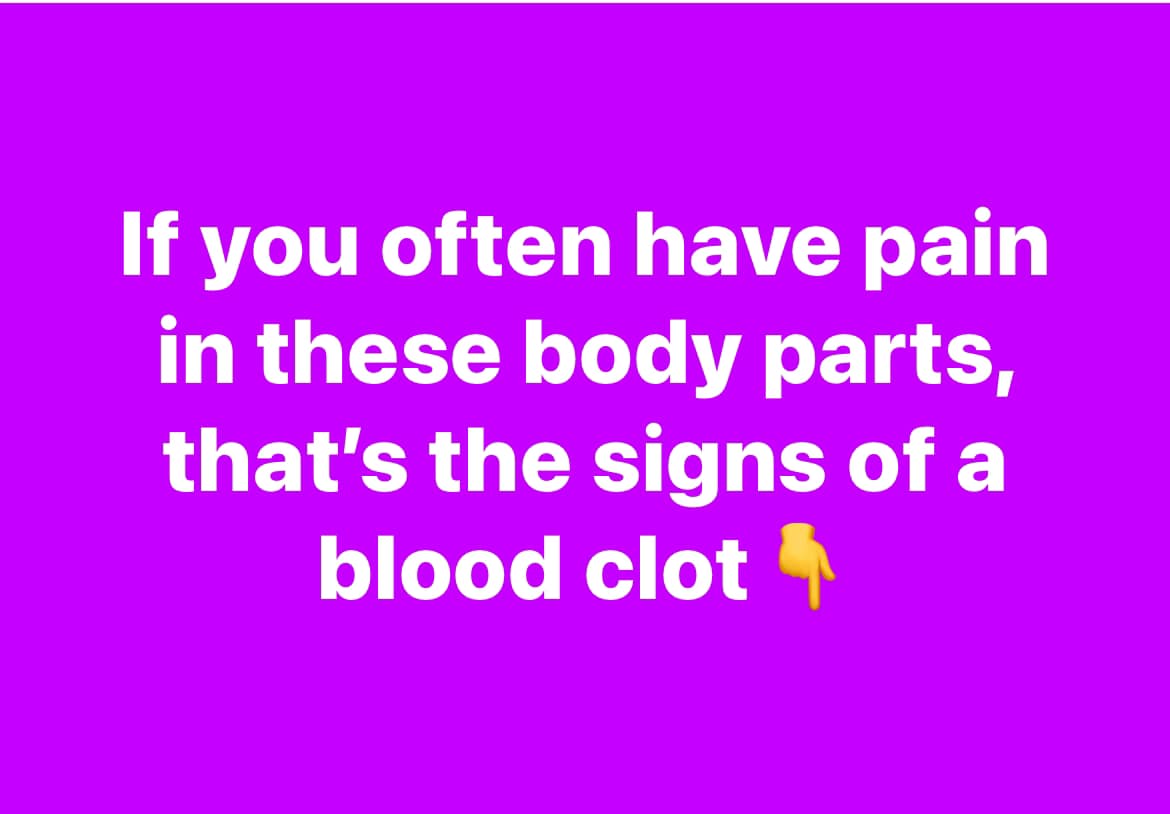If you often have pain in these body parts, that’s the signs of a blood clot
**What Is a Blood Clot?**
A blood clot is a clump of blood that changes from liquid to gel-like or semisolid. While clotting prevents excessive bleeding from cuts, clots inside veins can be dangerous and life-threatening if they block blood flow or travel to vital organs like the lungs, heart, or brain.
### Symptoms by Location:
**Arms & Legs**
– Swelling
– Pain or tenderness
– Warm sensation
– Red discoloration
– Large clots may cause extensive swelling or pain, typically in one limb.
**Heart**
– Severe chest and arm pain
– Sweating
– Difficulty breathing
**Lungs (Pulmonary Embolism)**
– Sudden shortness of breath
– Chest pain
– Rapid heart rate or palpitations
– Coughing up blood
**Brain**
– Vision or speech problems
– Seizures
– General weakness
– May lead to a stroke
**Abdomen**
– Severe or intermittent abdominal pain
– Nausea or vomiting
– Bloody stools, diarrhea, or bloating
– Fluid buildup (ascites)
**Kidneys**
– Pain in the side, belly, legs, or thighs
– Blood in urine
– Fever, nausea, or vomiting
– High blood pressure
– Severe leg swelling or difficulty breathing
Clots in critical areas require immediate medical attention. Early detection and treatment are crucial to avoid serious complications.







Post Comment